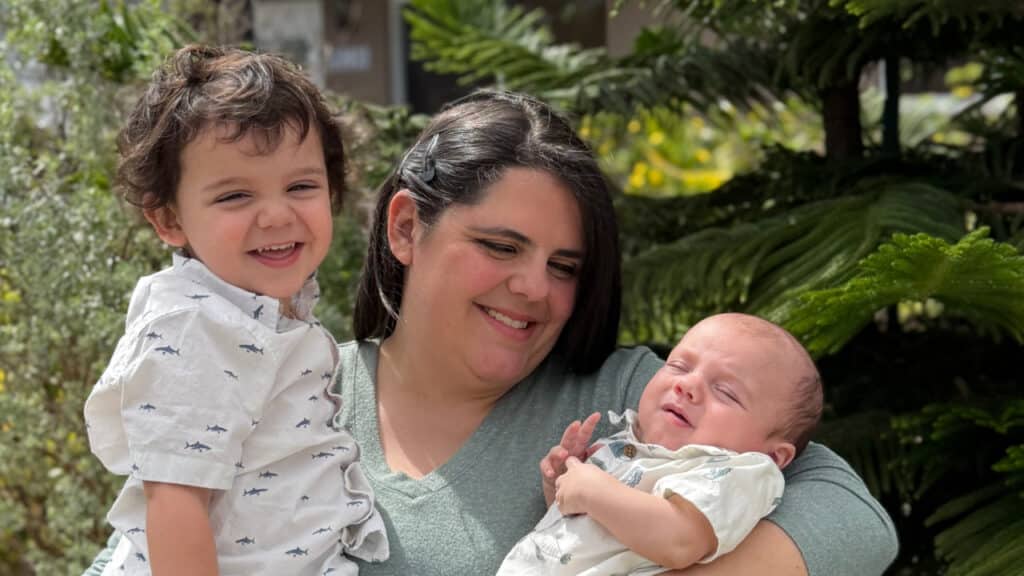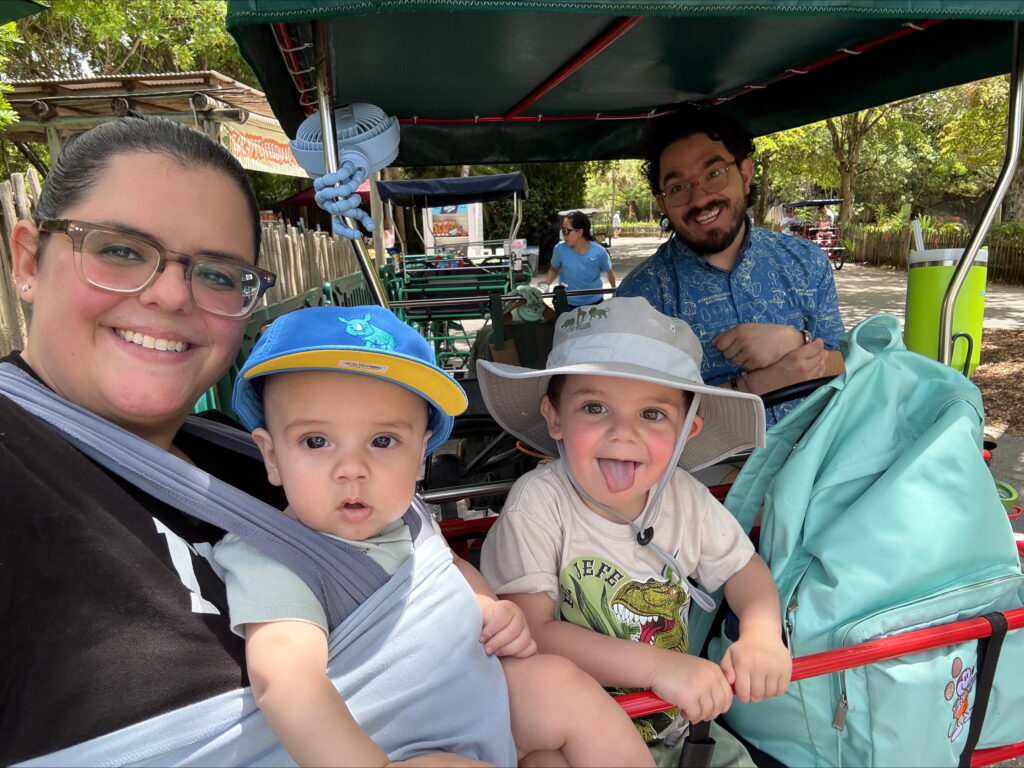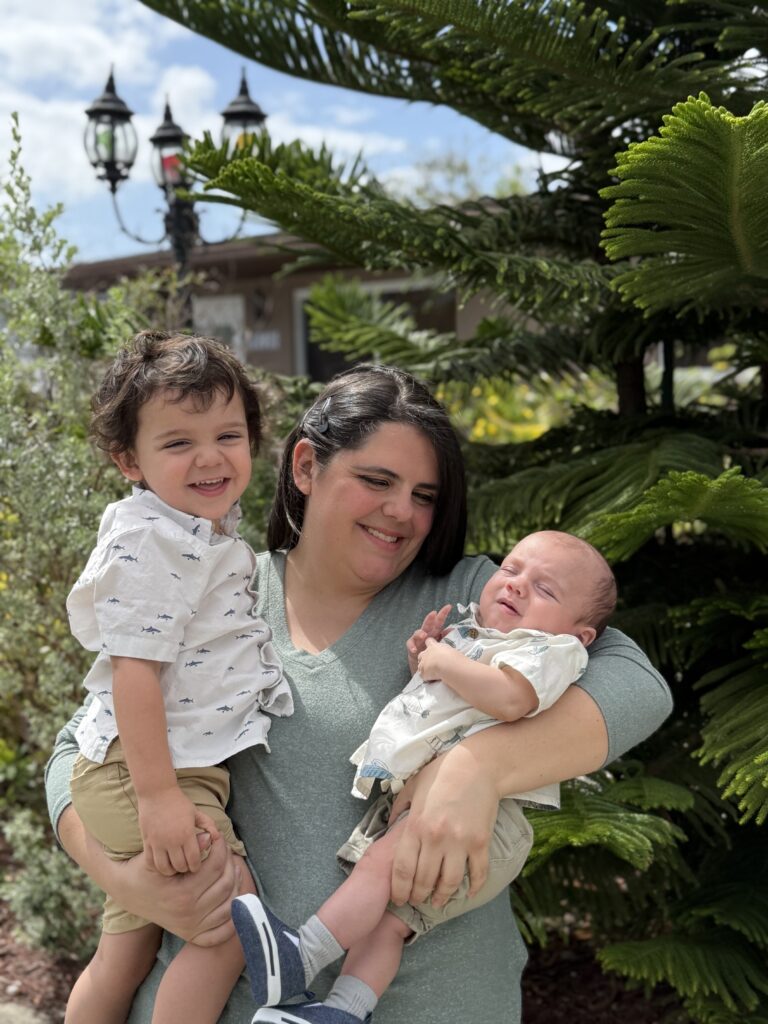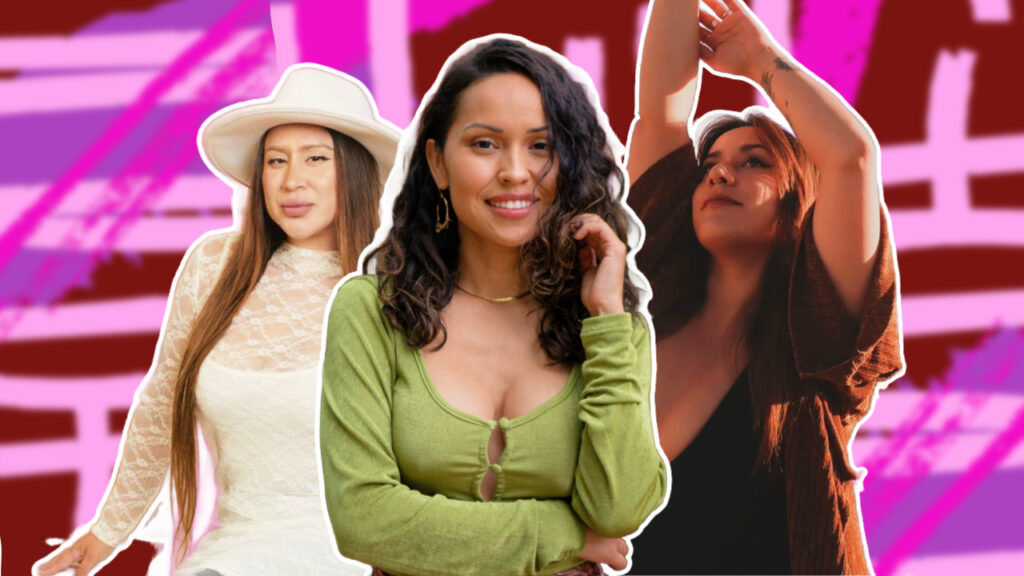
“Strength Isn’t Silence”: Kyrsten Alvarez on Surviving Postpartum Depression and Breaking Generational Cycles
Growing up in Miami, Kyrsten Alvarez was taught that mothers should “tough it out.” Her mom, a full-time police officer raising three kids, never showed cracks. Her grandmothers had endured miscarriages and raised families without ever speaking of their pain. “For a long time, I believed that strength meant silence,” Kyrsten told FIERCE.
But after the birth of her first child, silence nearly broke her. Kyrsten felt consumed by guilt and exhaustion. “My lowest point was feeling like my family would be better off without me,” she recalled. She told her husband, sister, and mom that they deserved someone better. At the time, she believed that was just who she had become as a mom.
The turning point came when her loved ones finally admitted they had struggled, too. “They told me that holding everything in had hurt them deeply. Hearing them say, ‘It’s OK not to be OK,’ made me realize that asking for help wasn’t weakness, it was survival.”

What postpartum depression really felt like
Popular portrayals of postpartum depression often don’t match lived experience. Kyrsten explained that her symptoms weren’t directed outward but inward. “My day-to-day felt like a constant struggle of not measuring up,” she said. “I would wake up already tired, and before the day even started, I felt like I had failed.”
Her pregnancies came with complications: a broken foot, a son in the NICU, and later, mastitis. But instead of giving herself grace, she blamed herself. “Each time, postpartum depression felt like I wasn’t ‘doing it right’ as a mom,” she said.
Isolation deepened the spiral. “I cried at night, feeling like no one truly understood. Social media only made it worse,” Kyrsten recalled. She avoided posting about her children’s births for months. “For me, postpartum depression wasn’t about not loving my children. It was about feeling inadequate, unsupported by the image of what motherhood ‘should’ look like, and trapped in the guilt of not living up to those expectations.”

Why Latina mothers face a higher risk
Kyrsten’s experience reflects broader disparities. Dr. Ingrid Paredes, an OB-GYN and postpartum depression expert, told FIERCE that cultural stigma plays a significant role. “We normalize postpartum depression with this idea that, ‘oh, my mom had it, grandma had it, you should be okay as well if they all had it and were able to deal with it,’” she explained.
This normalization discourages Latinas from seeking help. Dr. Paredes said many of her patients don’t list symptoms directly. “It’s like detective work I have to do,” she said. Questionnaires become the entry point, but it’s trust with a provider that helps women realize what they are experiencing is medical, not just motherhood.
She added that providers themselves often avoid the topic. “Most doctors don’t want to get into it because they know it is not going to be a 15-minute visit. But when you think of the alternatives of not intervening, it is unforgivable to ignore that.”
Redefining strength and support during postpartum depression
Kyrsten’s first support group left her doubting whether she even had a right to ask for help. “Many mothers there described their anger being directed toward their baby or partner, but mine was entirely toward myself,” she said. That experience showed her how much Latina mothers struggle in silence. “The unspoken message was: if they managed, I should too. That mindset turned my depression inward; all the blame landed on me.”
With her second child, Kyrsten took a different path. Therapy and medication, including Zurzuvae, changed her outlook. “I often describe my mind as a jar of marbles spilled across a tile floor – everything bouncing uncontrollably while I scrambled to catch them. With treatment, the marbles are still there, but they’re no longer bouncing everywhere. I can face them one at a time instead of drowning in chaos.”
Now, she understands that strength looks different than it did for her grandmothers. “What I know now is that it takes a tribe, but the tribe can’t help if you don’t let them in. Asking for help is a strength, not a weakness.”

A message to the next generation of Latina moms
Kyrsten wants other mothers to know they are not alone. “It’s possible to be both grateful and struggling, both blessed and broken,” she said. “That doesn’t make you any less of a mother.”
Dr. Paredes echoes that message. “Patients need to recognize postpartum depression as a medical condition – otherwise they are not going to come in for help,” she said. Her advice to providers: make it a priority, normalize the conversation, and allow mothers to speak freely.
For Kyrsten, breaking generational silence means her children will see strength defined differently. “If and when baby number three comes, I know I will be honest, I will ask for help, and I would absolutely take the medication again if I needed it,” she said. “Motherhood is not a straight path, but an adventure full of obstacles. Overcoming them doesn’t mean doing it alone.”




